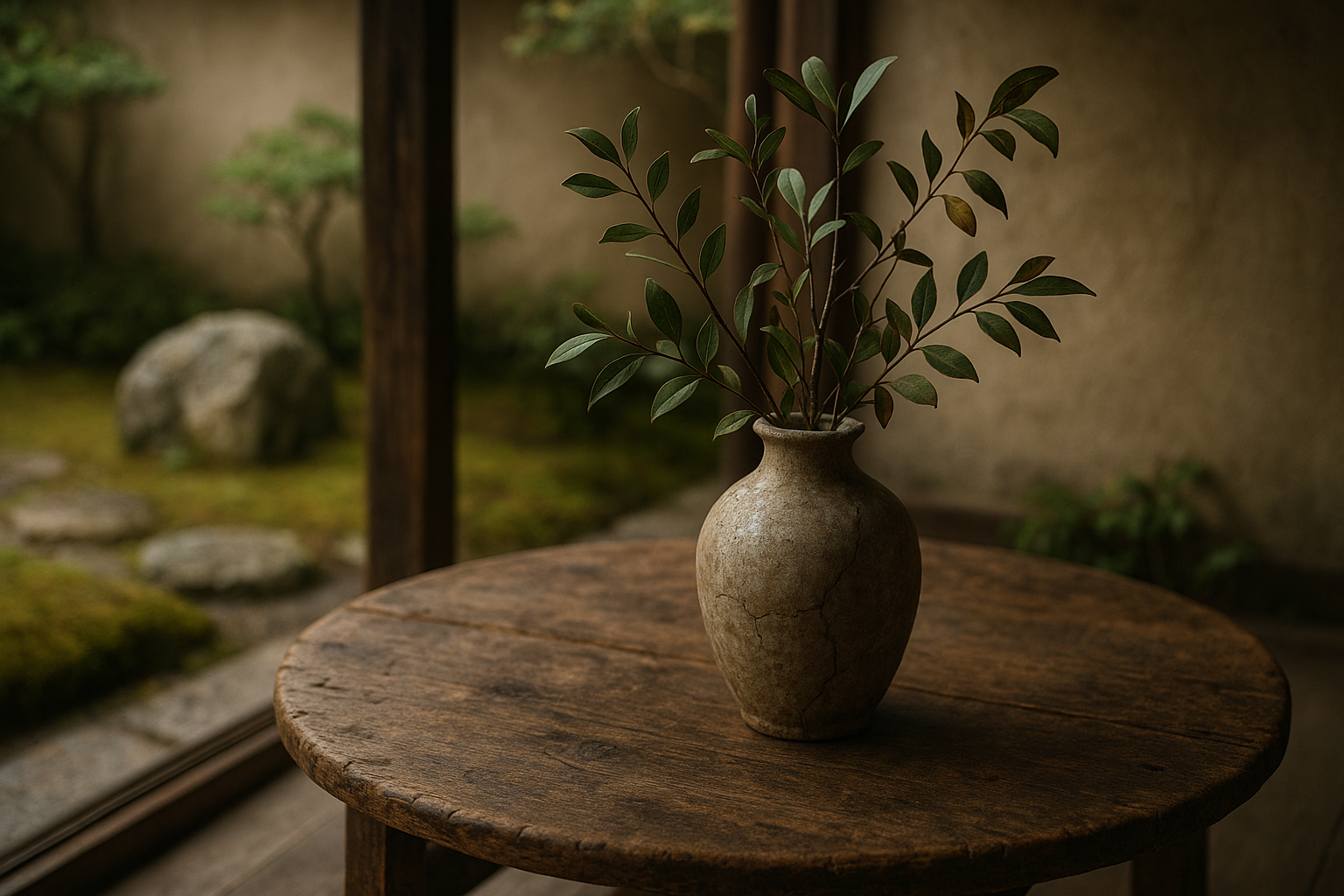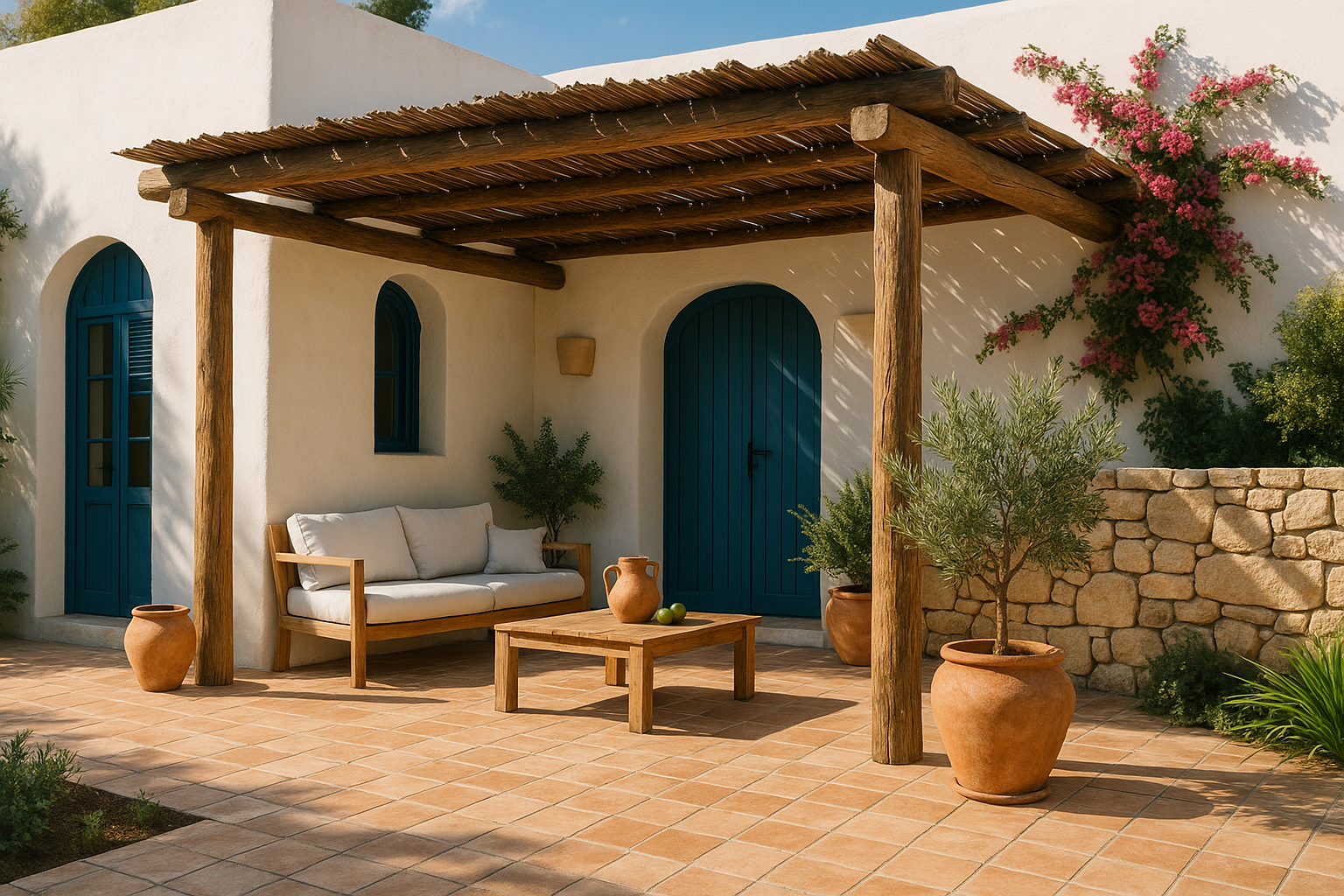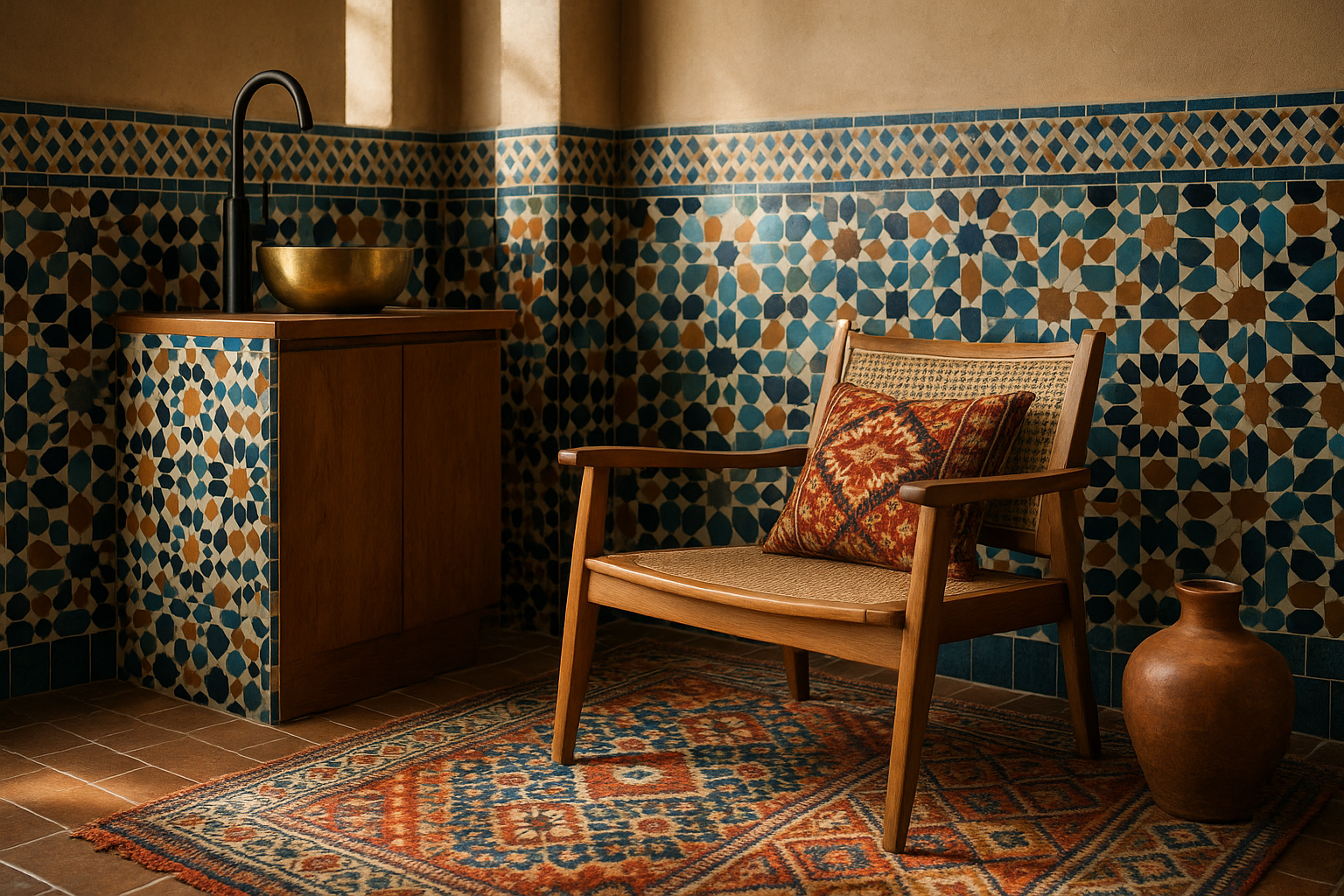Article ## Unveiling the Allure of Wabi-Sabi: The Japanese Art of Perfect Imperfection in Home Design
Introduction: Step into the world of Wabi-Sabi, a traditional Japanese design concept that celebrates the beauty of life's imperfections. This unique aesthetic, which turns traditional design principles on their head, is gaining popularity in homes across the globe. Dive in to discover how you can incorporate Wabi-Sabi into your home and garden for a serene and authentic living space.

A Glimpse into Wabi-Sabi’s Past
Wabi-Sabi’s roots lie deeply embedded in Zen Buddhism, specifically the tea ceremony, where simplicity and modesty are highly valued. This concept encourages appreciation of the beauty in everyday life, particularly those that are imperfect, temporary, and incomplete. It’s a philosophy that sees beauty in the weathered, worn, and aged—the antithesis of the Western world’s obsession with perfection.
Modern Relevance of Wabi-Sabi
In the era of mass production and identical designs, Wabi-Sabi offers an escape into authenticity and uniqueness. The imperfections in Wabi-Sabi design, such as a chipped vase or a worn wooden table, tell a story of life lived and appreciated. This growing trend is a reaction to the impersonal nature of modern design, offering a warm and organic alternative.
Practicality and Market Trends
The beauty of Wabi-Sabi is that it doesn’t require expensive or extravagant pieces. It’s about appreciating what you already have and finding beauty in its existence. This approach not only creates a more mindful and sustainable way of living, but it also reduces the need for constant consumerism. The market trend towards Wabi-Sabi indicates a shift in consumer mentality towards more authentic, lived-in designs.
Wabi-Sabi in Your Home and Garden
Incorporating Wabi-Sabi into your home might be simpler than you think. It could be as easy as showcasing a rustic wooden table with all its nicks and stains, or a garden with wild, untamed plants. It’s about letting things age naturally and appreciating the beauty of their life cycle—a rusty iron gate or a weather-beaten bench, for instance.
Research-Backed Benefits of Wabi-Sabi
Research suggests that environments reflecting the Wabi-Sabi aesthetic can have positive effects on mental health. A study published in the Journal of Environmental Psychology found that natural, imperfect environments can reduce stress and increase feelings of well-being. Thus, embracing Wabi-Sabi in home design not only creates a unique aesthetic but also promotes a healthier, happier lifestyle.
The world of Wabi-Sabi offers a refreshing break from the quest for perfection. It’s a celebration of life as it is—imperfect, transient, and deeply beautiful. So, why not embrace the charm of the worn, the weathered, and the imperfect in your home and garden? After all, life is beautifully imperfect, and so should be our living spaces.






